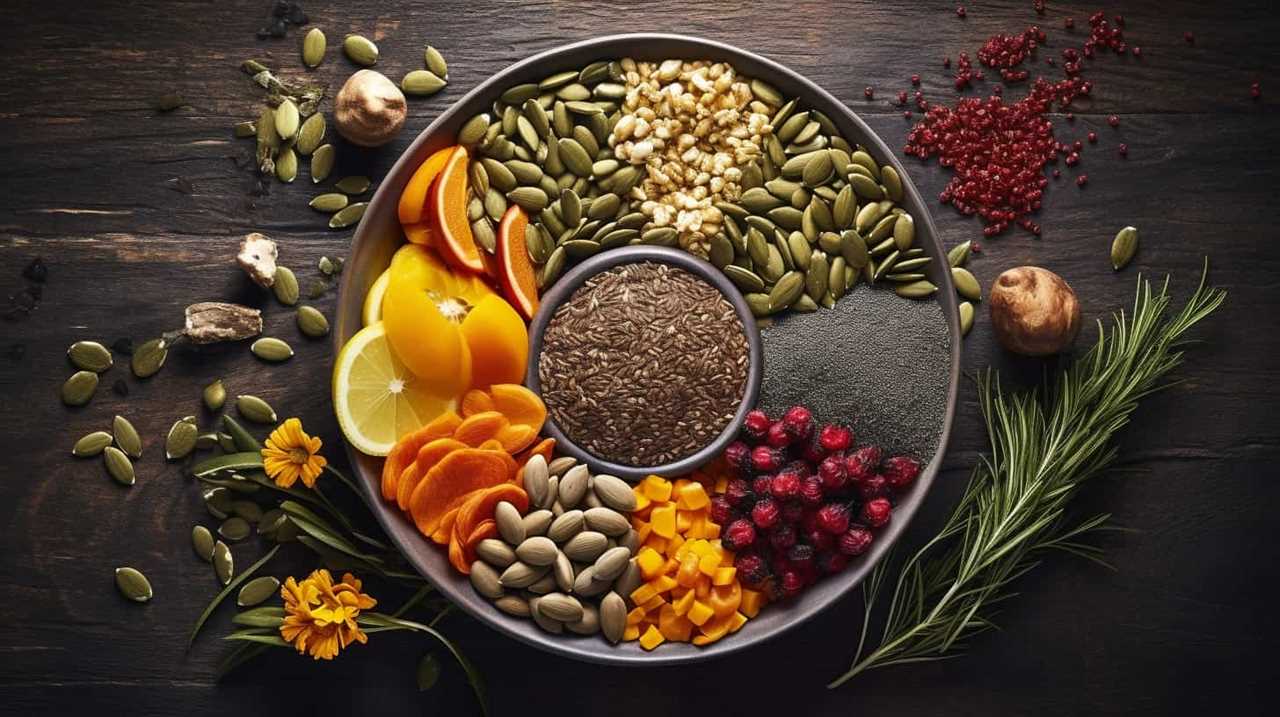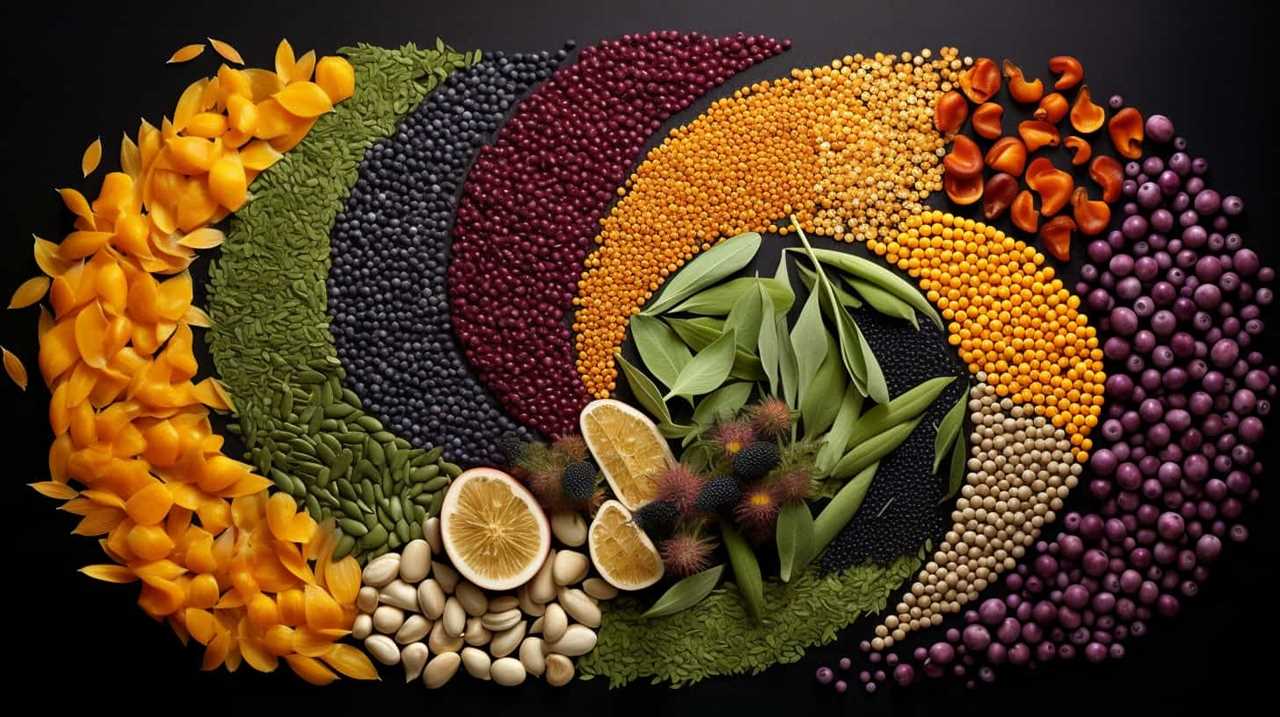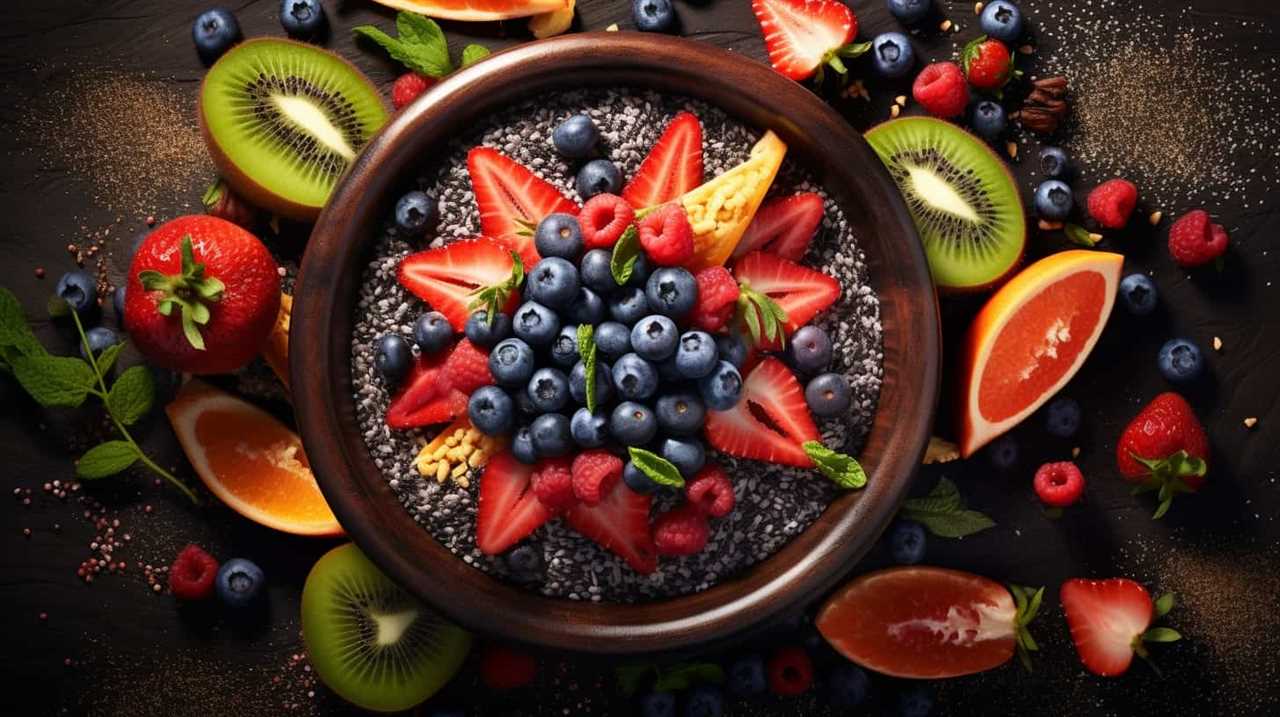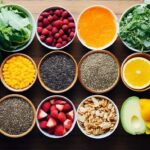Did you know that superfood seeds, like chia seeds, could contain unexpected health risks? There are several potential dangers we should keep in mind.
Allergic reactions, interactions with medication, and even choking hazards are just a few of the concerns. Additionally, digestive issues and contamination risks can also be a cause for worry.
In this article, we will explore these hidden risks and provide evidence-based information to help you make informed choices for your well-being.
Key Takeaways
- Chia seeds can trigger allergic reactions and individuals with known allergies or a history of anaphylaxis should exercise caution.
- Superfood seeds can pose a choking hazard, especially for young children and older adults, and appropriate precautions should be taken.
- Excessive consumption of superfood seeds can lead to digestive issues and interfere with nutrient absorption, particularly for individuals with pre-existing gastrointestinal conditions.
- Contamination and pesticide risks are associated with superfood seeds, and it is important to choose safe options that are free from contaminants and have undergone rigorous quality control measures.
Potential Allergic Reactions to Chia Seeds
We have discovered potential allergic reactions to chia seeds due to the presence of certain compounds. These reactions are concerning, as they can pose cross reactivity risks and even lead to anaphylactic reactions in susceptible individuals.

Chia seeds, often hailed for their nutritional value and health benefits, contain proteins such as albumin and globulin that can trigger allergic responses. When these proteins come into contact with the immune system of a sensitive person, it may mistakenly identify them as harmful and mount an immune response.
This response can range from mild symptoms like itching and hives to severe reactions such as difficulty breathing and swelling of the throat. It’s crucial for individuals with known allergies or a history of anaphylaxis to exercise caution when consuming chia seeds and consult with their healthcare provider for guidance.
Interactions With Medication and Health Conditions
Some medications and health conditions can potentially interact with superfood seeds. It’s important to be aware of these potential interactions, as they can have an impact on the effectiveness of medication and overall health. Superfood seeds, such as chia seeds or flaxseeds, are known for their nutritional benefits and are often consumed as a part of a healthy diet.
However, certain medications may interact with these seeds, affecting their absorption or metabolism in the body. For example, blood-thinning medications like warfarin may interact with chia seeds, as they contain omega-3 fatty acids that can also have blood-thinning effects.

Additionally, individuals with certain health conditions, such as digestive disorders or allergies, may need to exercise caution when consuming superfood seeds. Pregnant women should also consult their healthcare provider before incorporating these seeds into their diet, as they may impact pregnancy outcomes.
It’s important to always consult a healthcare professional before making any changes to medication or diet, to ensure optimal health and safety.
Choking Hazard for Children and Older Adults
As we continue exploring the hidden risks of superfood seeds, it’s important to address the choking hazard they pose for children and older adults. Choking is a serious concern, especially for vulnerable populations. Here are three key points to consider:
-
Children: Young children have a higher risk of choking due to their smaller airways and underdeveloped swallowing reflex. It’s crucial to supervise them closely while they consume superfood seeds and ensure they’re cut into appropriate sizes.

-
Older adults: With age, swallowing difficulties can arise, making superfood seeds a potential choking hazard. It’s advisable for older adults to consume seeds in a ground or powdered form to reduce the risk of choking.
-
Choking prevention: Taking steps to prevent choking incidents is paramount. This includes teaching children proper chewing techniques, avoiding distractions while eating, and practicing safe consumption habits for superfood seeds.
Digestive Issues and Gastrointestinal Discomfort
While superfood seeds offer numerous health benefits, they can also lead to digestive issues and gastrointestinal discomfort. Some individuals may experience food intolerances to certain types of seeds, such as chia or flax seeds, which can cause bloating, gas, and abdominal pain. These digestive issues can be particularly problematic for individuals with pre-existing gastrointestinal conditions, such as irritable bowel syndrome (IBS) or Crohn’s disease. Additionally, the high fiber content in superfood seeds can have an impact on nutrient absorption. Although fiber is essential for a healthy digestive system, excessive consumption of seeds can interfere with the absorption of certain nutrients, such as iron and zinc. Therefore, it is important to consume superfood seeds in moderation and listen to your body’s response to avoid any digestive discomfort.
| Digestive Issues and Gastrointestinal Discomfort | ||
|---|---|---|
| Symptoms | Possible Causes | Preventive Measures |
| Bloating, gas, abdominal pain | Food intolerances | Limit consumption of problematic seeds |
| Nutrient malabsorption | High fiber content | Consume seeds in moderation |
| Listen to your body’s response |
Contamination and Pesticide Risks in Chia Seeds
Continuing the discussion on potential risks of superfood seeds, we need to address the contamination and pesticide risks associated with chia seeds. Chia seeds have gained popularity for their nutritional benefits, but it’s important to be aware of potential contamination risks that may arise during cultivation, processing, and storage.

Here are three key points to consider:
-
Contamination risks: Chia seeds can be exposed to various contaminants, including heavy metals, bacteria, and mold. These contaminants can pose health risks, especially if consumed in large quantities or by individuals with compromised immune systems.
-
Pesticide risks: Chia seeds, like other crops, may be treated with pesticides to protect against pests and diseases. The presence of pesticides in chia seeds can be a concern, as some pesticides have been linked to adverse health effects. It’s crucial to choose organic or pesticide-free chia seeds to minimize pesticide exposure.
-
Quality control measures: To ensure the safety of chia seeds, it’s important for manufacturers and suppliers to implement rigorous quality control measures. This includes testing for contaminants and adhering to strict guidelines to prevent contamination and pesticide residues.

Frequently Asked Questions
Are There Any Other Superfoods That Can Cause Potential Allergic Reactions Like Chia Seeds?
There are other superfoods that may cause potential allergic reactions, just like chia seeds. It’s important to be aware of these risks and consider alternative superfoods that provide similar health benefits without the potential for allergic reactions.
Can Chia Seeds Interact Negatively With Over-The-Counter Medications?
Sure, chia seeds can have interactions with over-the-counter medications, potentially causing negative effects. It’s important to be aware of these risks, as well as potential allergic reactions that can occur from consuming chia seeds.
Is There a Specific Age Group That Is More Prone to Choking Hazards From Chia Seeds?
We should be cautious when consuming chia seeds, as certain age groups are more prone to choking hazards. To prevent this, it is important to take proper precautions and ensure the seeds are consumed safely.
What Other Digestive Issues Can Be Caused by Consuming Chia Seeds?
Chia seeds can cause digestive discomfort and even chia seed intolerance. It’s important to be aware of the potential risks and listen to our bodies when incorporating superfood seeds into our diets.

Are There Any Regulations or Guidelines in Place to Ensure the Safety of Chia Seeds Regarding Contamination and Pesticide Risks?
There are regulations and guidelines in place to ensure the safety of chia seeds regarding contamination and pesticide risks. These measures aim to protect consumers and ensure that the seeds meet quality standards.
Conclusion
In conclusion, the hidden risks of superfood seeds, such as chia seeds, may seem insignificant, but they can have serious consequences. Allergic reactions, interactions with medication, choking hazards, digestive issues, and pesticide contamination are all potential dangers that shouldn’t be overlooked.
It’s crucial to be aware of these risks and make informed decisions when incorporating superfood seeds into your diet. Stay informed, stay safe, and enjoy the benefits of these powerful seeds responsibly.
















